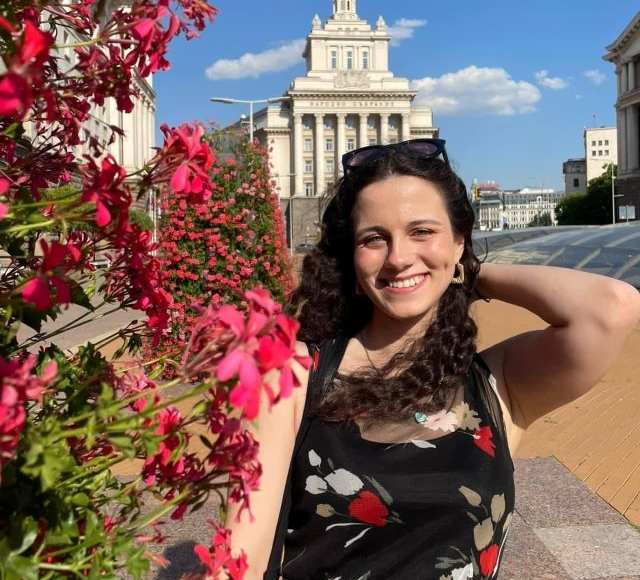
Catherine shares her experience studying Politics and International Relations
Written by Catherine Riachi, a third year Politics and International Relations student
You’re thinking of studying Politics and International Relations at university but have many questions about academic life, modules, career prospects and the student experience? Let me give you a taste of what it’s like!
My name is Catherine, I am a third-year EU student undertaking a Politics and International Relations degree at the University of Manchester. I often find people asking me why I chose Manchester, out of all cities, and why exactly politics?
Even though narrowing down my choices, in all honesty, was a difficult process, there was so many reasons why this university was my top pick. From being in the Top 5 Politics Departments in the UK, having a huge multicultural campus, to being part of such a vibrant, inclusive and diverse city, I was sure that picking Manchester was my best bet. I always knew I wanted to live in a big city that is rich in its culture, music, sports, and political history – and Manchester definitely exceeded my expectations.
However, apart from the incredibly diverse social environment, I was also very intrigued by the Politics courses the University had to offer, specifically the one with the International Affairs component. The programme structure in this course, as well as the learning and assessment methods, offer a very holistic, intersectional study of a combination of social sciences. So let me explain how modules in Politics and IR work: each module in this course usually falls under one of three categories – comparative politics, international politics, and political theory.
In Year 1, there are four compulsory modules, which aim to set the foundation of political knowledge amongst all students, with the rest of the optional modules available to choose either from the Politics department, or outside of it. In Year 2, apart from one compulsory Research Methods course, all other courses are optional. Some examples of my favourite modules so far include the Politics of (in)Security, Politics of Globalisation, Politics of Development and Comparative West European Politics. These modules enabled me to dive deep into international and comparative politics and analyse the way different governments, power structures and identities intersect with each other. Topics we have explored are the history of the global political economy, climate change and mitigation, migration, social services in developing countries, sustainable development goals, and so many more! In Year 3, there is a compulsory dissertation, along with a few other optional courses – some of my choices include Politics of the European Union, Chinese Politics and Race, Ethnicity and Migration. Regarding teaching and assessment methods, Politics classes usually include a 2-hour lecture, followed by a 1-hour student-led and discussion-based tutorial. Assessments vary throughout courses, but they usually take the form of essays, presentation, class participation, report reviews/analyses and exams.
However, apart from academic life, students often take part in a range of extracurriculars. The Student’s Union has more than 400 societies, with a number of them being political, campaigning and human-rights based! Volunteering while in university is also a great opportunity to enhance your skills, help your local community, and meet like-minded people. The course also offers a study abroad year, as well as numerous opportunities for internships through the support of the Careers Service.
Overall, studying Politics and International Relations has been an incredibly rewarding experience that has not only contributed to my professional development, but also my personal growth, whereas being in the heart of Manchester has helped me make friends for life and experience the true side of what it means to be a proud Mancunian.






0 Comments